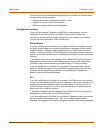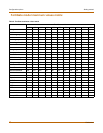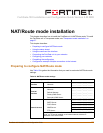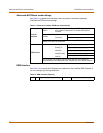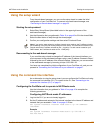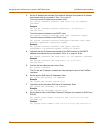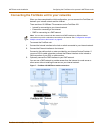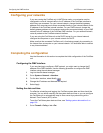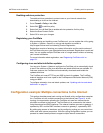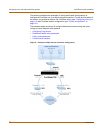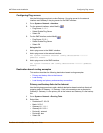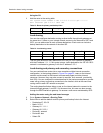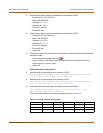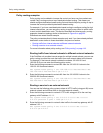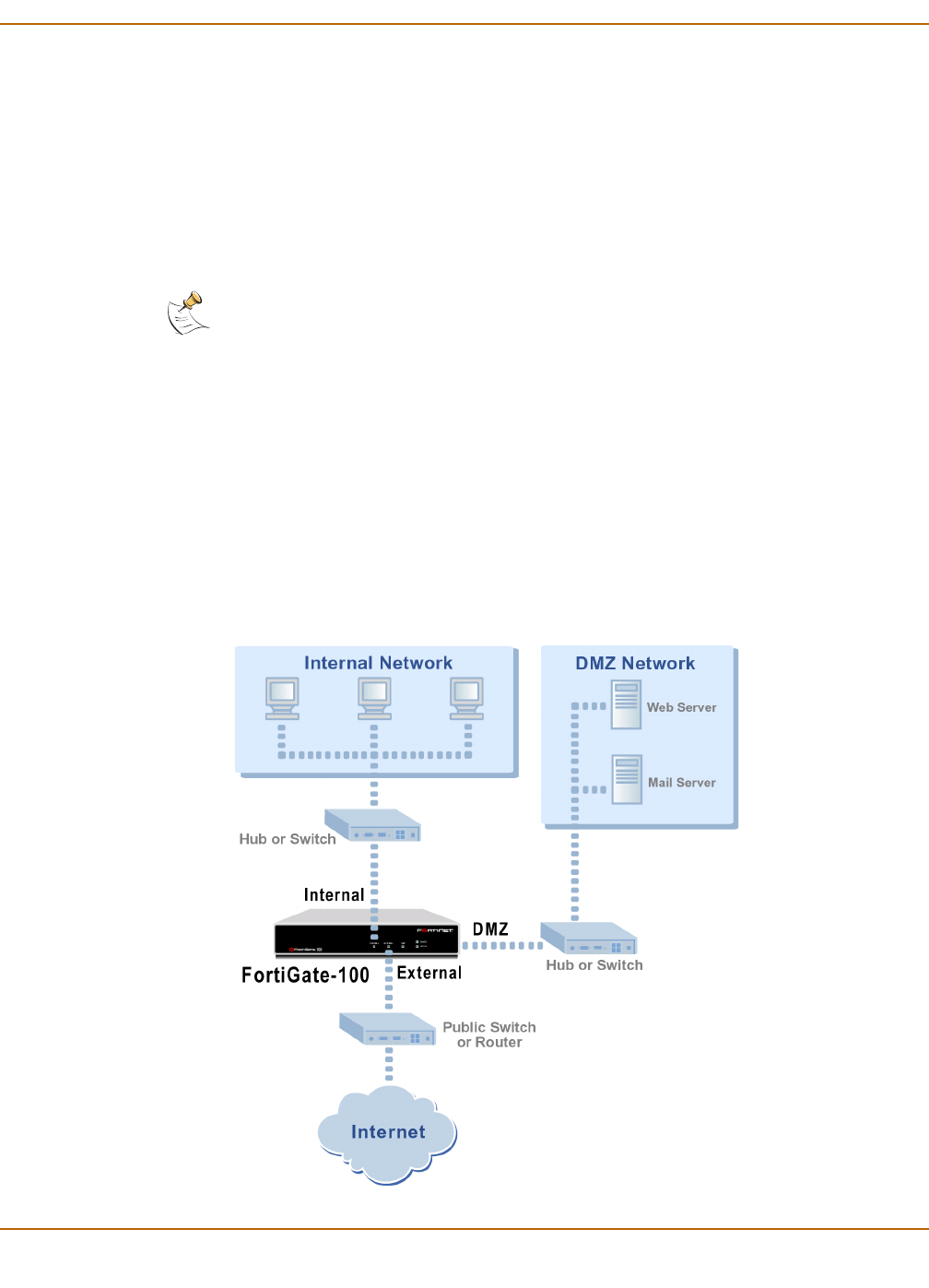
NAT/Route mode installation Configuring the FortiGate unit to operate in NAT/Route mode
FortiGate-100 Installation and Configuration Guide 47
Connecting the FortiGate unit to your networks
When you have completed the initial configuration, you can connect the FortiGate unit
between your internal network and the Internet.
There are three 10/100Base-TX connectors on the FortiGate-100:
• Internal for connecting to your internal network
• External for connecting to the Internet
• DMZ for connecting to a DMZ network
To connect the FortiGate unit:
1 Connect the Internal interface to the hub or switch connected to your internal network.
2 Connect the External interface to the Internet.
Connect to the public switch or router provided by your Internet Service Provider. If
you are a DSL or cable subscriber, connect the External interface to the internal or
LAN connection of your DSL or cable modem.
3 Optionally connect the DMZ interface to your DMZ network.
You can use a DMZ network to provide access from the Internet to a web server or
other server without installing the servers on your internal network.
Figure 7: FortiGate-100 NAT/Route mode connections
Note: You can also connect both the external and DMZ interfaces to different Internet
connections to provide a redundant connection to the Internet. See “Configuration example:
Multiple connections to the Internet” on page 49.



